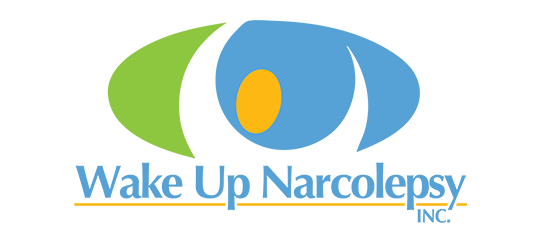Narcolepsy Study
Comparison Table
Click the green button above to search for a study near you.
 |
|||||||||||||
|---|---|---|---|---|---|---|---|---|---|---|---|---|---|
Click the study name or NCT# to find out more info about each study. |
This Phase 1b, randomized, double-blind, sponsor-unblinded, placebo-controlled 4-way crossover study will evaluate the efficacy, safety, tolerability, and pharmacokinetics (PK) of a range of JZP441 doses in participants with NT1. Changes in daytime sleepiness will be assessed via objective (MWT) and subjective (KSS, VAS for sleepiness) efficacy measures. | The purpose of this study is to assess the tolerability of HBS-201 when starting at a therapeutic dose in adult participants with narcolepsy. | This study is a long-term extension (LTE) of the parent Study ORX750 0201, and will provide long-term open-label safety, tolerability, and efficacy of ORX750 in participants with narcolepsy type 1 (NT1), narcolepsy type 2 (NT2), and idiopathic hypersomnia (IH). Interested in participating contact Orexin Centessa Program Lead at 617-468-5770 or by email at ORX750-LTE@centessa.com. | Narcolepsy without cataplexy or Narcolepsy Type 2 (NT2) is a lifelong condition that makes people very sleepy during the day, regardless of how much sleep they get at night. People with NT2 may fall asleep suddenly, have trouble staying awake during the day, or may not be able to sleep well at night. They may have difficulty thinking clearly, paying attention, or remembering things, during the day. These symptoms can make daily activities like driving, working, or caring for their families challenging, impacting their quality of life. Orexin is a chemical made in the brain that helps keep a person awake and alert. TAK-360 acts like orexin. Previous studies have shown that medicines that act like orexin may keep people awake. If interested in participating contact the Takeda Team at +1-877-825-3327 or by email at medinfoUS@takeda.com. | The main objectives of this study are to determine the treatment preferences of children with narcolepsy type 1 between Extended-release sodium oxybate and Non-extended-release oxybates (Sodium oxybate or a medication with the combination of Calcium, magnesium, potassium, and sodium oxybates). The study will also assess the safety, convenience, and tolerability of Extended-release sodium oxybate. Additionally, the researchers aim to assess how well Extended-release sodium oxybate works in treating narcolepsy type 1. For more information contact Miran Cho at 650-724-4149 or by email at mirancho@stanford.edu or Mila Trabanino at milaludi@stanford.edu. | A Phase 2, Randomized, Parallel-Group, Double-Blind, Dose-Range-Finding Study to Evaluate the Safety and Efficacy of ALKS 2680 in Subjects with Idiopathic Hypersomnia (Vibrance-3) The purpose of this study is to measure the safety and decrease in daytime sleepiness in subjects with Idiopathic Hypersomnia when taking ALKS 2680 tablets compared with placebo tablets | A Dose-Finding, Adaptive, Randomized, Double-Blinded, Placebo-Controlled Trial to Evaluate the Safety, Tolerability, and Efficacy of TAK-360 in Participants With Idiopathic Hypersomnia (IH) The main aim of this study is to learn how safe TAK-360 is and how well adults with IH tolerate it. Researchers also want to find out if TAK-360 can help people with IH stay awake and how much TAK-360 is needed to do that. Contact Takeda at medinfoUS@takeda.com or by phone at +1-877-825-3327 for more information. | A Phase 2a, Randomized, Double-blind, Placebo-controlled Study of the Safety, Tolerability, Pharmacokinetics, and Pharmacodynamics of ORX750 in Subjects with Narcolepsy and Idiopathic Hypersomnia (CRYSTAL-1). For more information email CRYSTAL-1@centessa.com | An Open-Label, Long-Term Extension Study to Investigate the Safety, Tolerability, and Durability of Treatment Effect of ALKS 2680 in Subjects With Narcolepsy Type 1 and Type 2. US Only: For more information call Director, Global Clinical Services 888-235-8008 or email: clinicaltrials@alkermes.com Global: For more information call Director, Global Clinical Services 571-599-2702 or email: 571-599-2702 | This is a double-blind, placebo-controlled, randomized withdrawal, multicenter study of the efficacy and safety of FT218 with an open-label safety extension period. FT218 drug product is a once-nightly formulation of sodium oxybate for extended-release oral suspension. The study will enroll subjects who are diagnosed with idiopathic hypersomnia. Subjects will be eligible to enroll regardless of current treatment with oxybate therapy or stimulants/alerting agents at study entry. The estimated total duration of study for each subject is approximately 42 weeks, including the open-label safety extension period. For more information contact Avadel 636-449-1830 or email grichards@avadel.com. | Low sodium oxybate has been approved by the US Food and Drug Association (FDA) for the treatment of idiopathic hypersomnia. In this study, the researchers want to learn how low sodium oxybate impacts the ability of people diagnosed with idiopathic hypersomnia to sleep for long periods of time. In addition, this study will use novel tools to determine when an individual is asleep or awake. Contact Clinical Trial Disclosure & Transparency at ClinicalTrialDisclosure@JazzPharma.com or by phone at 215-832-3750 for more information. OR click study number below to see individual sites and contact information. | The drug being tested in this study is called TAK-861. TAK-861 is being tested to treat people who have narcolepsy type 1 (NT1). This study will look at the safety of TAK-861 along with improvement in narcolepsy symptoms, including excessive daytime sleepiness (EDS) and number of cataplexy episodes. This study was initiated in parallel with the parent phase 2 studies, TAK-861-2001 (NCT05687903) and TAK-861-2002 (NCT05687916), which included participants with NT1 and narcolepsy type 2 (NT2), respectively. This long-term extension (LTE) study enrolled participants with both diagnoses from the two phase 2 studies. As the TAK-861-2002 study did not meet prespecified criteria, all participants with NT2 have been discontinued, and this extension study will only include participants with NT1 who previously completed a parent study. Additional parent studies include all TAK-861 phase 3 studies. The study will enroll up to 500 patients. Participants will be assigned to one of the treatment groups according to the dose assigned to them in their parent study. Similarly, participants who were previously on a placebo dose will also be assigned to one of the treatment groups randomly. All participants in the study will receive TAK-861. Participants with NT1 will receive the following dose from the parent study: TAK-861 Dose 1 TAK-861 Dose 2 This multi-center trial will be conducted worldwide. The overall time to participate in this study is up to approximately 5 years. Participants will make multiple visits to the clinic (with some visits optionally conducted by home health) and will have a follow-up assessment 4 weeks after the last dose of study drug. This is an open label extension that aims to evaluate the safety and tolerability of TAK-861 on participants with type 1 and type 2 narcolepsy from previous parent studies, TAK-861-2001 (NCT05687903) and TAK-861-2002 (NCT05687916). For more information contact 877-825-3327 or email medinfoUS@takeda.com. | |
| NCT # | NCT06961266 | NCT07051252 | NCT07096674 | NCT06952699 | NCT06809803 | NCT06843590 | NCT06812078 | NCT06752668 | NCT06767683 | NCT06525077 | NCT05837091 | NCT05816382 | |
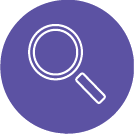 | What is the main factor the study is measuring? | Adverse Events, Pharmacokinetics, Assessments of MWT, KSS and VAS | Adverse Events | Adverse Events, Changes in Laboratory Tests, Vital Signs, ECG, Suicidal Ideation or Behavior | Tolerance, Dose Finding, Excessive Daytime Sleepiness | Participants preference of extended-release sodium oxybate vs sodium oxybate vs calcium, magnesium, potassium and sodium oxybates | Excessive Daytime Sleepiness | Tolerance, Dose Finding, Excessive Daytime Sleepiness | Adverse Events, Changes in Laboratory Tests, Vital Signs, ECG | Adverse Events | Excessive Daytime Sleepiness | Total Sleep Time | Adverse Events. Excessive Daytime Sleepiness |
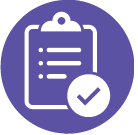 | Diagnosis | NT1 | NT1, NT2 | NT1, NT2, IH | NT2 | NT1 | IH | IH | NT1, NT2, IH | NT1, NT2 | IH | IH | NT1, NT2 |
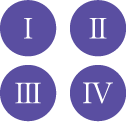 | Study Phase | Phase I | Phase Ib | Phase II | Phase II | Phase II | Phase II | Phase II | Phase II | Phase II, III | Phase III | Phase IV | Phase II and III |
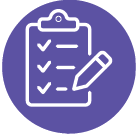 | Important criteria to be able to participate | Diagnosis of NT1 with an average sleep latency of less than 15 minutes. Minimum body weight 50kg (men)/45kg (women), BMI 18-35kg | Diagnosis of NT1 or NT2 | Diagnosed with NT1, NT2 or IH | Diagnosed NT2, BMI 16-38 with greater to or equal to 40kg | Participants must be under the care of a doctor at the Stanford Sleep Clinic. | Diagnosed IH within the previous 10 years | Diagnosed IH, BMI 16-38 with greater to or equal to 40kg | Diagnosis of NT1, NT2, or IH, BMI 17-37 | Completed ALKS 2680-201 (Vibrance-1) or ALKS 2680-202 (Vibrance-2) | Diagnosis of Idiopathic Hypersomnia, TST 7+ hours | Total Sleep Time (9 or more hours) | Completed previous TAK-861 study |
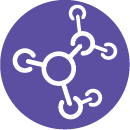 | Mechanism | Orexin | Selective Histamine 3 (H₃) | Orexin | Orexin | Sodium Oxybate | Orexin | Orexin | Orexin | Orexin | GABA / GHB | GABA / GHB | Orexin |
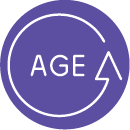 | Age Range | 18 to 64 | 18+ | 18 to 65 | 18 to 70 | 7 to 17 | 18 to 70 | 18 to 70 | 18 to 65 | 18 to 70 | 18 to 75 | 18 to 65 | US: 18-70; Japan: 16-70 |
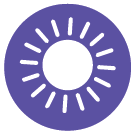 | Daytime Testing Required | N/A | N/A | UNK | UNK | ||||||||
 | Overnight Stays Required | N/A | N/A | N/A | N/A | N/A | N/A | N/A | N/A | ||||
| Max Study Duration | Up to 11 weeks | 44 days | Up to 70 days | Up to 15 weeks | Up to 8-12 weeks | 8 wks | 8 wks | 49 days | 100 weeks | 42 weeks | 3 months | 108 weeks | |
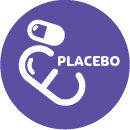 | Is there a possibility of receiving placebo? | N/A | |||||||||||
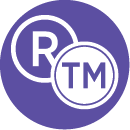 | Trade Name | Not Published | Pitolisant Hydrochloride | Not Published | Not Published | Sodium Oxybate & Oxybates | Not Published | Not Published | Not Published | Not Published | Lumryz | Xywav | Not Published |
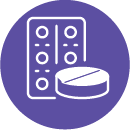 | Drug Formulation | Not Published | Tablet | Capsule | Tablet | Liquid | Tablet | Tablet | Capsule | Tablet | Tablet | Liquid | Tablet |
 | Will I be compensated financially for my participation? | N/A | N/A | N/A | N/A | N/A | |||||||
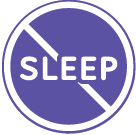 | Can I have other sleep disorders during the trial? | N/A | N/A | N/A | N/A | N/A | |||||||
 | Where is the trial being conducting (Region / # of sites) | US (4) | US (15) | Not Available | US (12), China (3), France (1), Italy (3), Japan (6), South Korea (3), Spain (1) | US (1) | Not Available | Not Available | US (1) | US (5) | US (6) | US (4) | US (25) EU (32) Asia (11) |
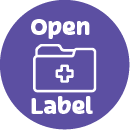 | Is this an open label study? | N/A | N/A | ||||||||||
Information & research
Find out common sleep and research terminology to help you understand your disorder.





